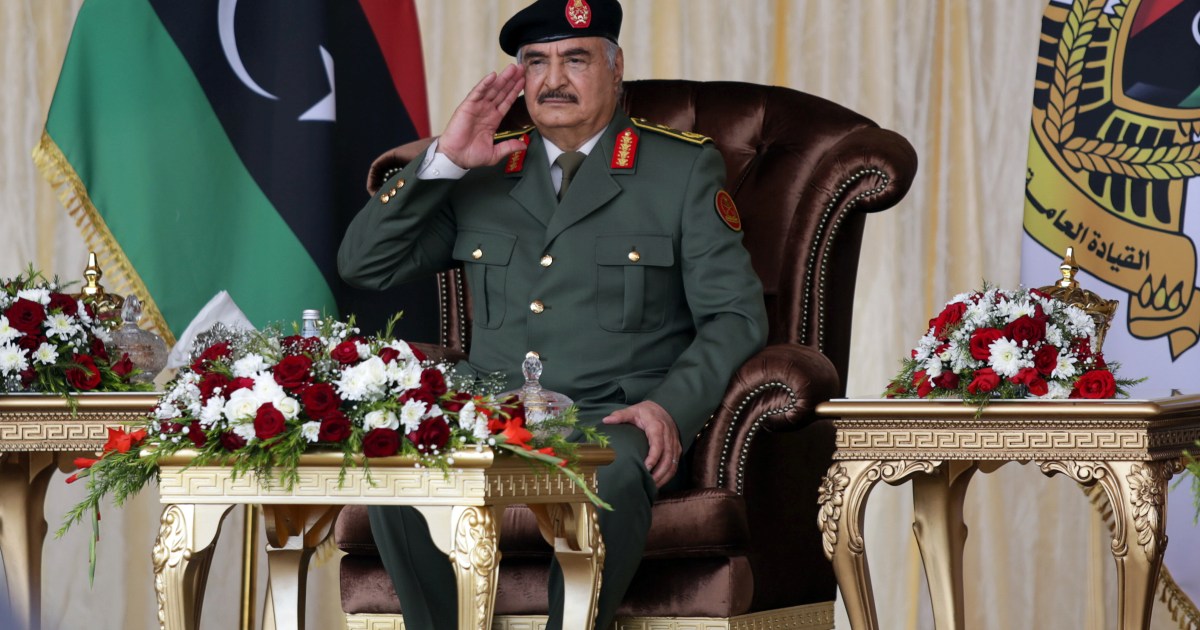An article in the American magazine "National Interest" stressed the need for the United States to punish retired Libyan Major General Khalifa Haftar, who holds American citizenship, for his destructive role in Libya.
The authors of the article, Sasha Topirich and Debra Kagan - the first executive vice president of the Transatlantic Leadership Network, and the second adviser to former US President George W. Bush - stated that Haftar participated in the 1969 coup that brought Muammar Gaddafi to power, and that his first international appearance was after Libya lost its war. with Chad in 1987.
After Haftar was imprisoned in Chad, he was eventually released under a deal with the US government, after which he became a CIA asset, and later a US citizen.
They noted that after the UN-brokered Skhirat Agreement in 2015, the then-president of the internationally recognized Libyan government, Fayez al-Sarraj, secretly negotiated a political settlement with Haftar to try to achieve stability in Libya.
Meanwhile, then-UN envoy Ghassan Salame was working hard to get all Libyan political factions to agree to the elections and the peace process.
Salame's announcement of the Libyan National Congress, which was supposed to take place from 14 to 16 April 2019 in the city of Ghadames, was such a breakthrough that the Secretary-General of the United Nations visited Tripoli on the fifth of April to show support for its achievement.
However, Haftar believed - according to the authors' opinion - that the Ghadames conference would end his chance of becoming the next Gaddafi and the absolute leader of Libya, and the two writers talked about Saudi Arabia and the UAE pledge to provide millions of dollars for his capture of Tripoli, and that they sent him combat supplies.
It is hard to imagine that the United States would support any part of Haftar's political life, and Congress should seriously consider holding a hearing on his destructive role in Libya, and examining how an American citizen could operate the way he does without facing the consequences.
Because of his attack on Tripoli, the Ghadames conference did not take place, and his failed campaign displaced 200,000 people, resulted in mass graves in Tarhuna, and further divided an already divided Libya.
Tobirich and his colleague Kagan added that Haftar's deadly adventure encouraged Russia, as the retired general - who has become a strong ally of the Kremlin - welcomed the Russian Wagner group to fight for his cause.
Russia, which never missed an opportunity in the region, gradually took control of many Libyan military bases.
The authors believe that Haftar is not the only problem in Libya, but it is the biggest obstacle that prevents his country from moving forward, and that he is still receiving significant financial assistance, and he recently appointed Lanny Davis, the former assistant to President Bill Clinton, and former Republican House leader Bob Livingston, to be a front to improve his image and promotion. He is in the elections on December 24, 2021 in Libya.
The authors hinted that he could not run for the Libyan presidency unless he gave up his American citizenship, but he might push one of his sons to run instead.
He has actually appointed them military commanders despite their lack of military training or background.
They added that it is difficult to imagine that the United States would support any part of Haftar's political life, and Congress should seriously consider holding a hearing on his destructive role in Libya, and consider how an American citizen can act the way he does without facing the consequences.
The authors conclude their article that Haftar - with his hopes of becoming the next autocratic leader of Libya - has seriously threatened US national security and the security of the North Atlantic Treaty Organization (NATO) (NATO) through his alliance with Russian military and paramilitary institutions, all while committing war crimes, noting that despite his American citizenship, Haftar is not a friend of the United States.

